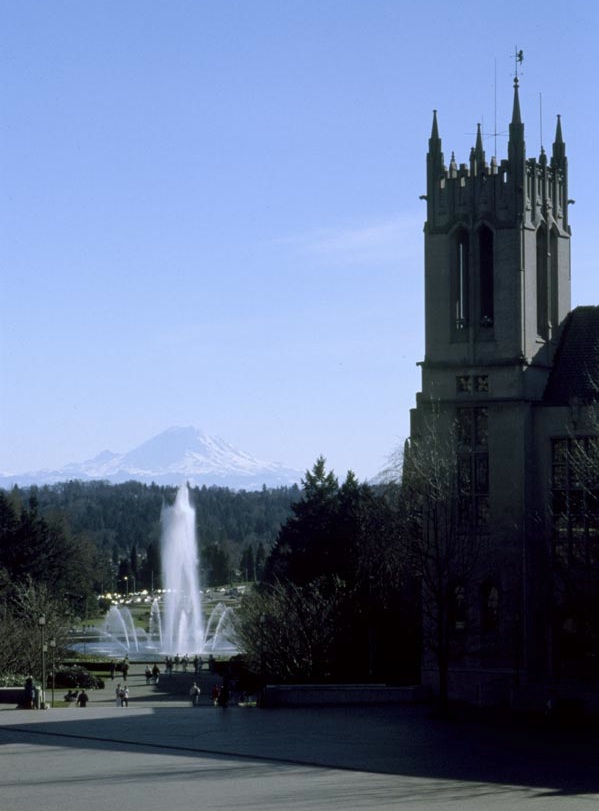UW RTG IPDE Summer School 2013
|
Dates: July 8-26, 2013.
The application process is now
closed.
Material for this year's summer
school will be posted here.
Overview
A three-week summer school
giving advanced undergraduates and
beginning graduate students the
opportunity to study with the University of Washington's
integrated Inverse
Problems/PDE group. Students
will attend lectures in the
morning and problem sessions in
small groups with mentors in the
afternoon. Advance your career by
learning from experts in these
fields while visiting Seattle
during summer 2013, when the
Pacific Northwest is at its best.
|
 |
Microlocal Analysis and Inverse
Problems
|
In inverse
problem one attempts to determine
the internal properties of a
medium by making measurements
outside the medium. In many
instances this is not possible to
do and one would like to recover
the singularities of the
medium parameters. For this,
microlocal analysis (MA) has
proven to be particularly useful.
MA is, roughly speaking, local
analysis in phase space, which
arose as a natural development of
the methods of geometrical optics.
Hörmander introduced in the early
70's the concept of wave front set
of a distribution and developed a
calculus of Fourier integral
operators (FIO). These were very
important developments that led to
many results in the study of
singularities of solutions of
partial differential equations and
have also had important
applications in other fields.
We will
concentrate in two applications of
MA to inverse problems:
|
Generalized Radon
transforms: The
Radon transform and the
X-ray transform integrate
a function along planes or
lines. We will consider
generalizations of these
transforms to integrate
functions (or vector
fields or tensors) along
more general surfaces and
curves. These arise
naturally, for instance,
in seismic imaging.
|
|
Coupled-Physics Inverse
Problems:
Coupled-Physics, also
called Hybrid, inverse
problems are imaging
modalities that have
received a lot of
attention in recent years
due to the great promises
they hold for medical
imaging and other fields.
By combining two or three
different types of waves
(or physical fields) these
methods overcome
limitations of classical
tomography techniques and
deliver otherwise
unavailable, potentially
life-saving diagnostic
information. Among these
methods are the
Thermoacoustic Tomography
(TAT), Photo-Acoustic
Tomography (PAT),
Ultrasound Modulated
Optical and Impedance
Tomographies (UMOT,
UMEIT),
Magneto-Acousto-Electric
Tomography (MAET) and
several other modalities
combining magnetic fields
with ultrasound scanning
of the tissue. Closely
related to these methods
are so-called combined
physics modalities such as
Current Density Imaging
and Elastography. Besides
medical imaging there has
been also recent interest
on coupled-physics inverse
methods in oil exploration
in particular on the
Seismo-electric effect.
|
Problem
sessions and computer labs will be
scheduled during the afternoons.
|
Lecturers
|
Lectures will be
given by
|
Prerequisites
The course is
aimed at graduate students, but strong
advanced undergraduate students with the
appropriate background might find it
suitable. We assume familiarity with real
analysis at the level of a first year
graduate course, and the Fourier
transform. Basic knowledge of linear
partial differential equations and Sobolev
spaces will be useful. A good reference
for the background topics are the books by
L.C. Evans: Partial Differential Equations
or Folland: Introduction to PDE, in
particular the chapters in these books
which deal with linear second order
partial differential equations. No
previous knowledge of MA is required.
Program details
- Open to advanced undergraduates and
beginning graduate students.
- On-campus accommodation and meals will
be provided, plus a travel allowance of
up to $600.
- Must be a U.S. citizen or permanent
resident.
 Note:
Applications from international
students may be considered, but
international students must provide
their own support for travel,
accommodation, and meals. In
particular, small travel grants may
be available for Canadian students,
who should contact PIMS Deputy
Director George
M.
Homsy for possible support. Note:
Applications from international
students may be considered, but
international students must provide
their own support for travel,
accommodation, and meals. In
particular, small travel grants may
be available for Canadian students,
who should contact PIMS Deputy
Director George
M.
Homsy for possible support.
To Apply:
Submit by April 1 via the online application:
- Personal statement about why you would
like to attend the IPDE Summer School at
the University of Washington.
- Names of two people whom you will ask
to submit letters of recommendation.
Recommendations should be submitted
using the online
recommendation form.
Please direct
questions or comments about the IPDE
Summer School to
ipdemail@math.washington.edu.
|


